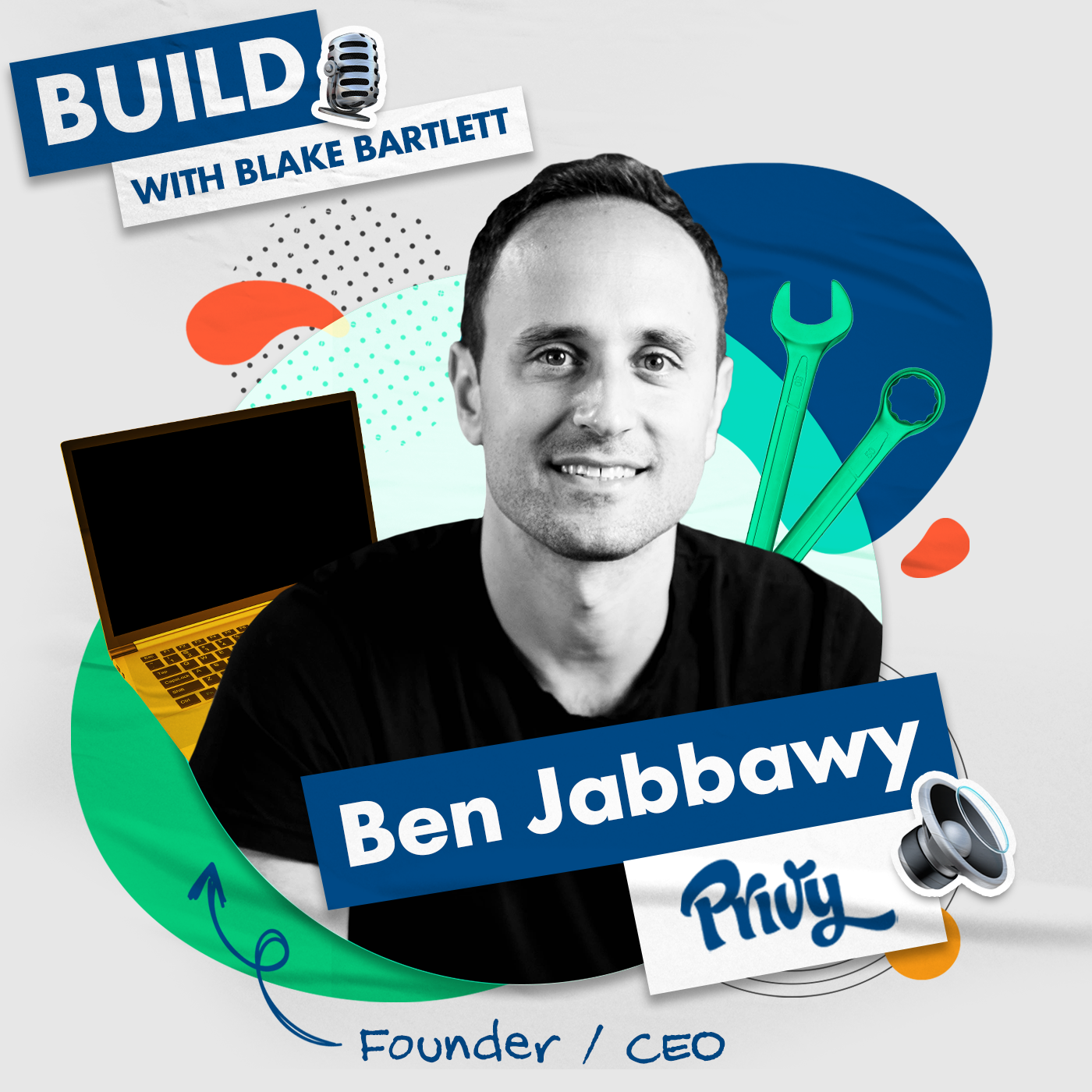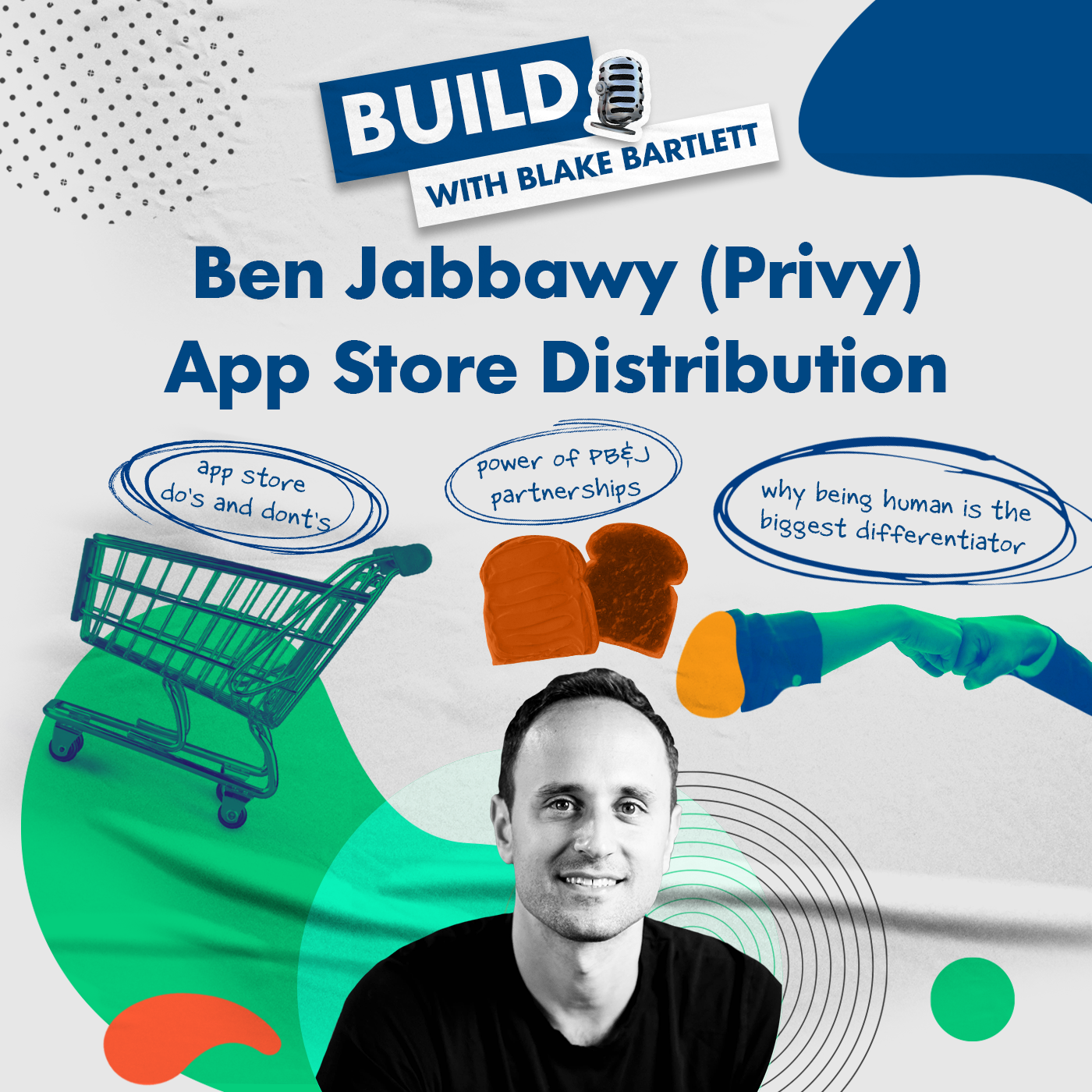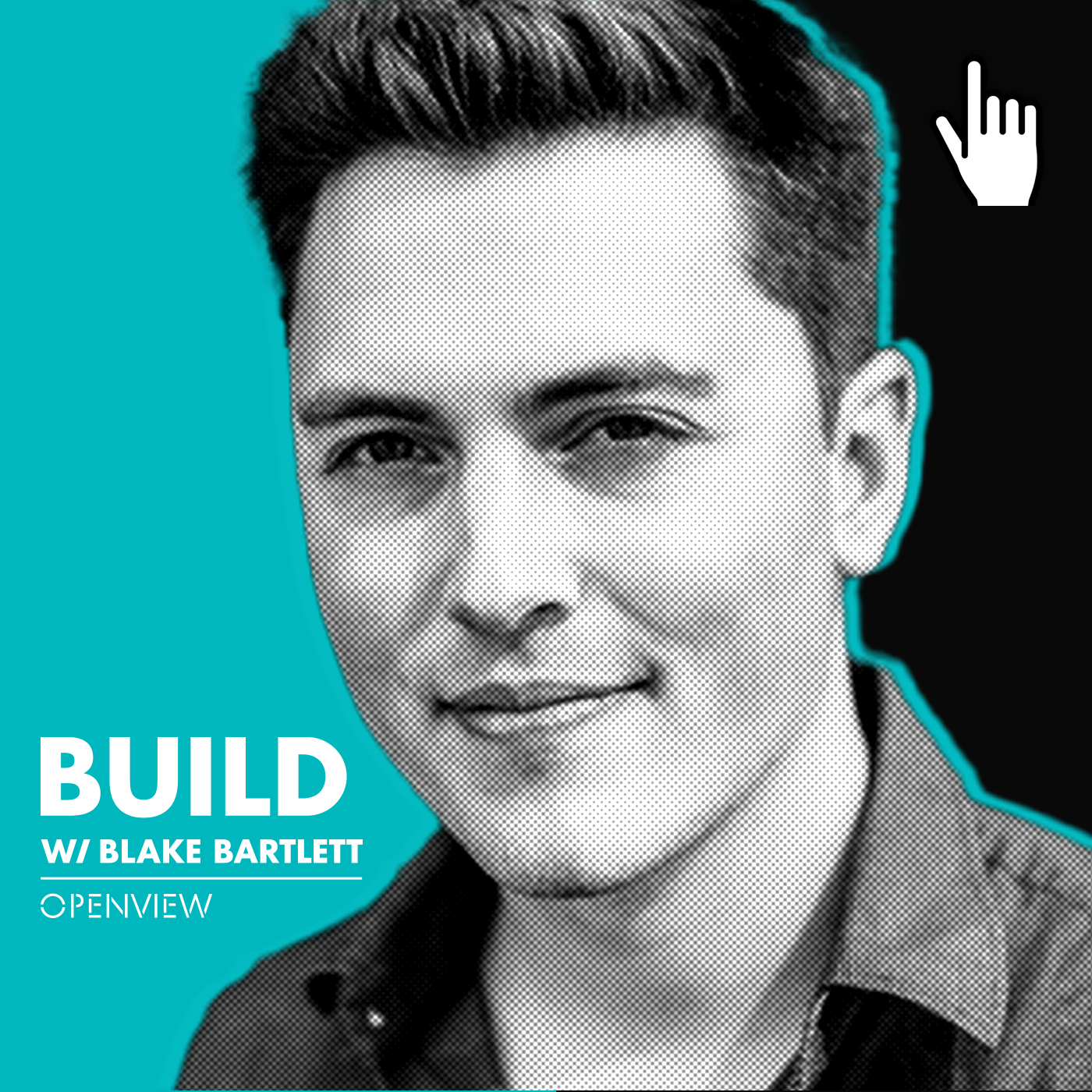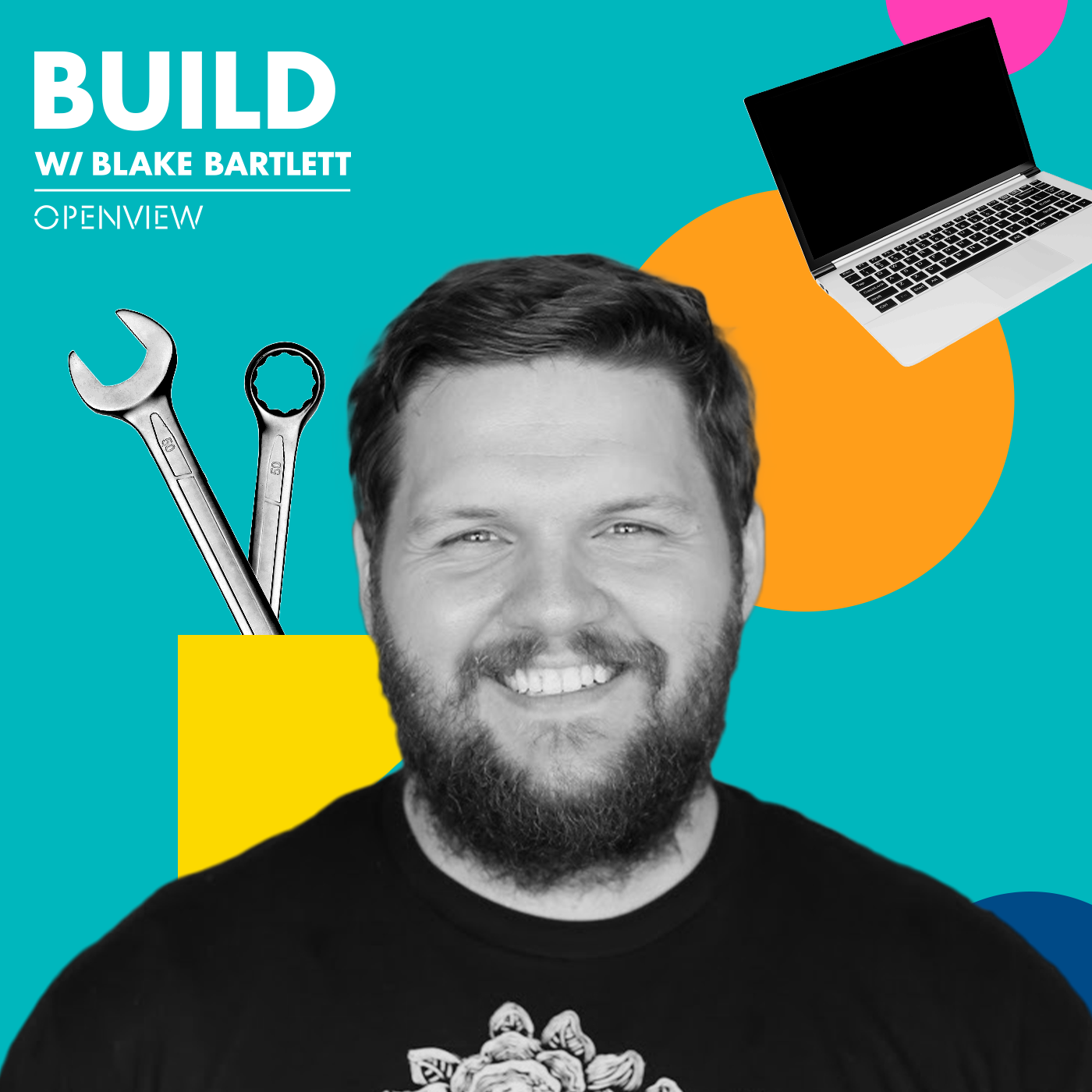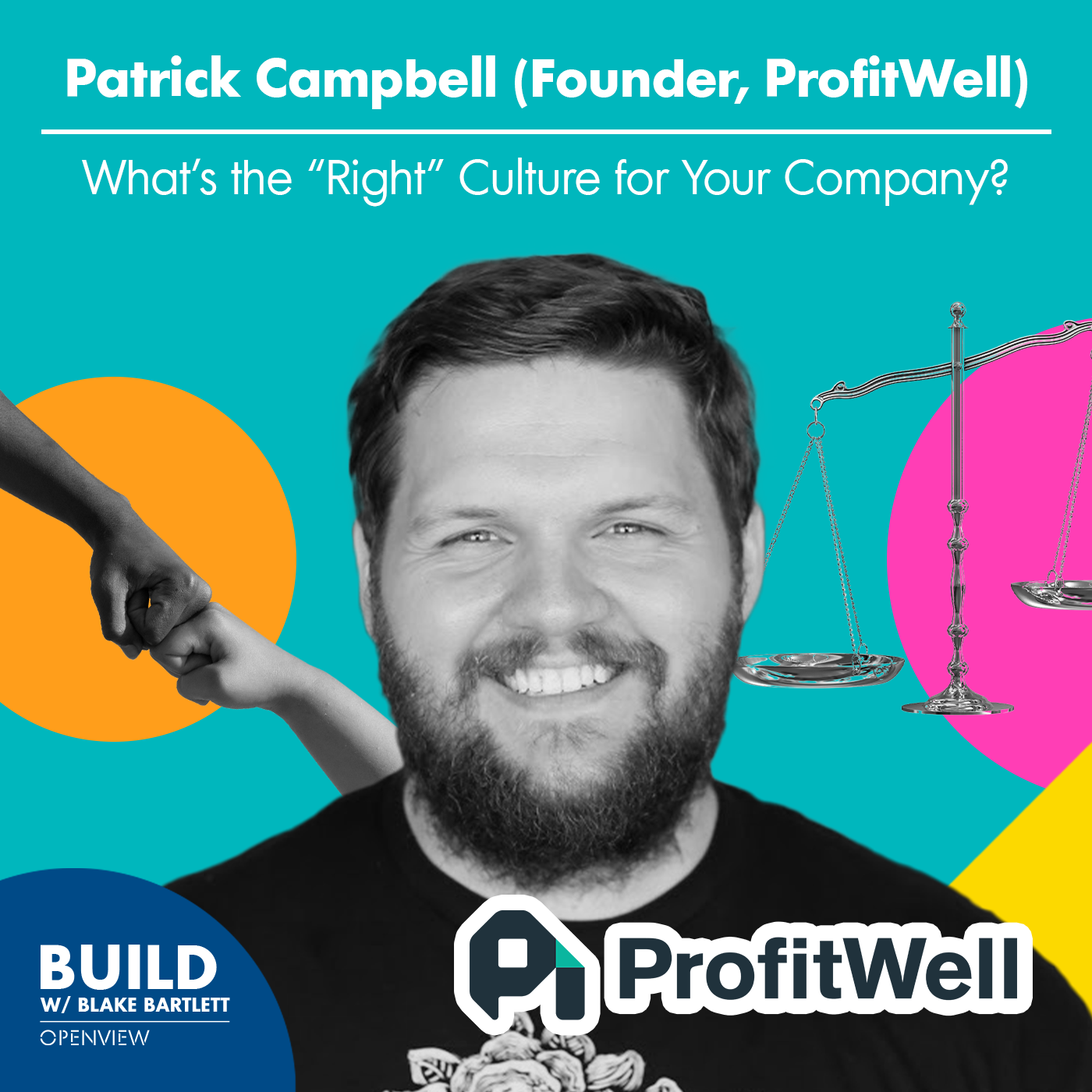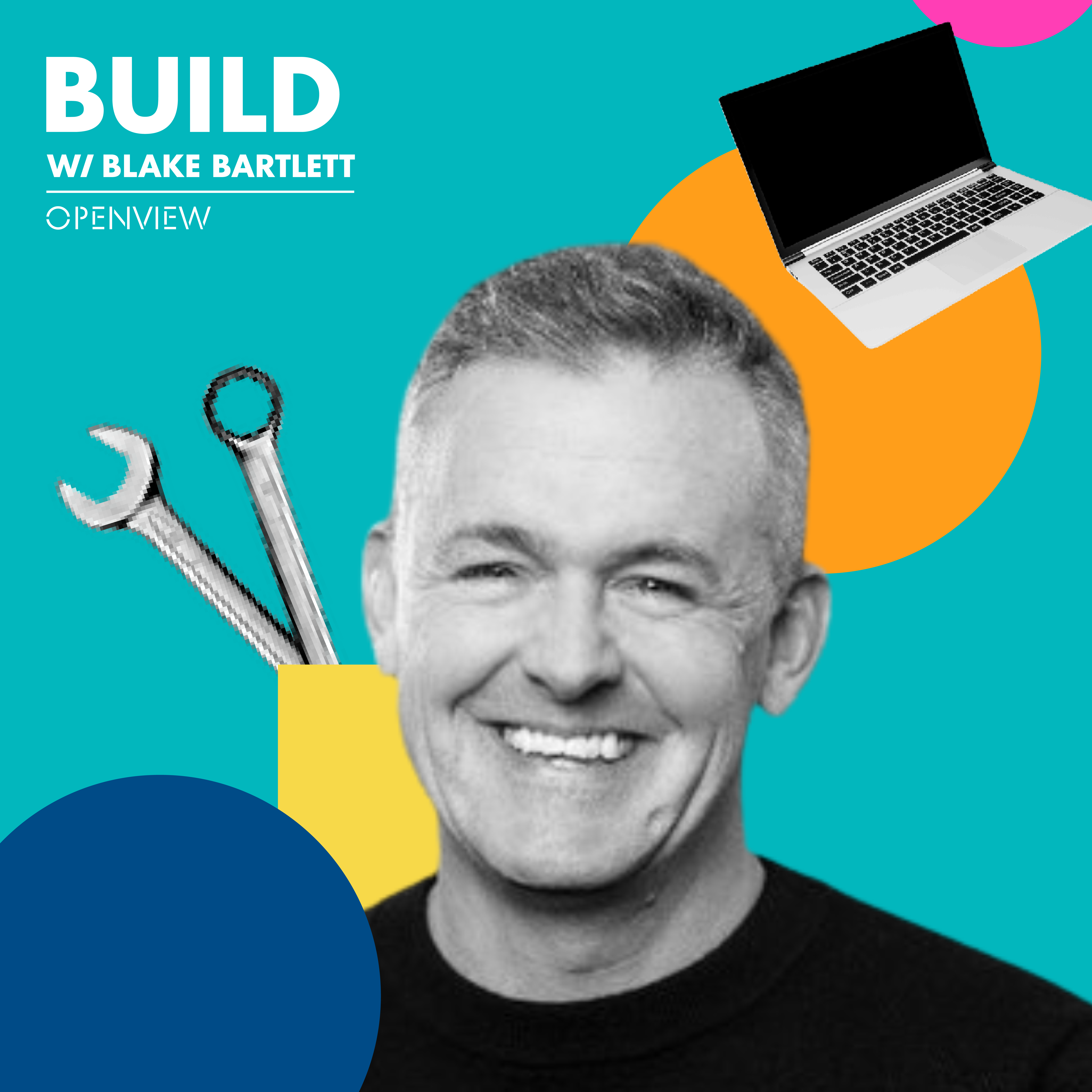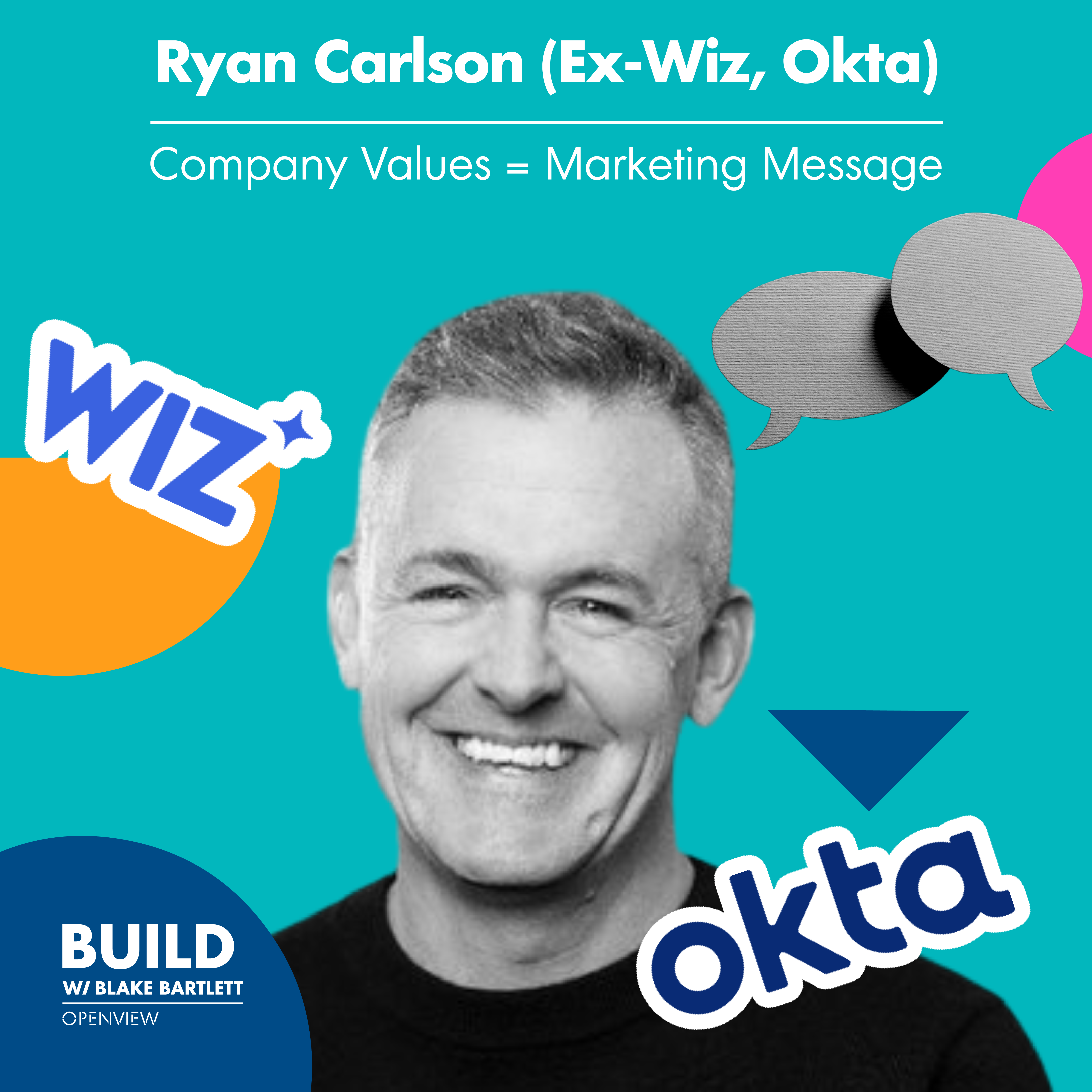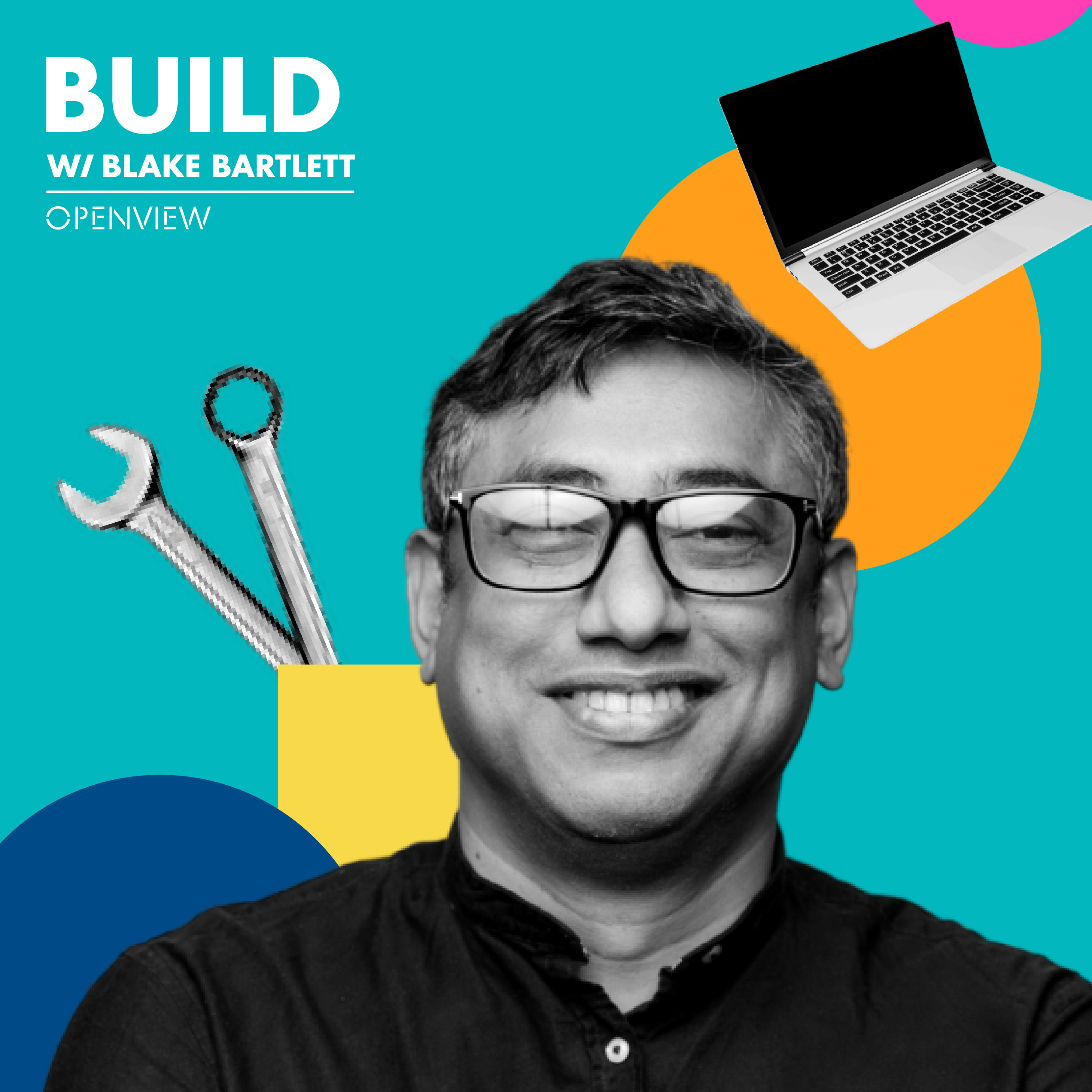Ben Jabbawy (Privy): App Store Distribution
- 0.5
- 1
- 1.25
- 1.5
- 1.75
- 2
Ben Jabbawy: Yeah. I mean, I can't tell you how many conversations with investors or, we were recently acquired. Even potential acquire conversations would poke and they'd be like, hey, do you really want your listing to say those things? And I'm like, hell yeah. I wouldn't do it any other way. I know there's a lot of other bigger companies that take that brand approach, but I just find Privy's mass market, it's a velocity game for us. These are small businesses that we target. And so when they're looking for something, I want them to know that we offer it right away.
Blake Bartlett: Welcome back to the BUILD podcast. I'm Blake Bartlett, a partner at OpenView. The world of SAS is always evolving and we're here to help you adapt, compete, and win with your startup. The BUILD podcast brings you stories and insights from my conversations with the most successful people in SAS. In today's episode, I chat with Ben Jabbawy, founder and CEO of Privy. Privy is a marketing platform for Shopify merchants and is one of the most popular apps on the Shopify app store with nearly 25, 000 reviews. Ben founded Privy over nine years ago, and just recently announced that the company had been acquired by Attentive. In today's conversation, we discuss app store distribution. Privy has seen massive success in the Shopify app store and is now replicating the model in other app stores. Ben shares his playbook for app store distribution, which can be hugely impactful to your go- to market efforts. All that and more on this episode of BUILD. So let's dive in with Ben Jabbawy. Ben, thanks so much for joining us here on the BUILD podcast. It's great to have you on the show.
Ben Jabbawy: Yeah. Blake, this is awesome. Awesome to be here.
Blake Bartlett: So we're talking app store distribution and its power for SAS companies today. And I guess the first thing is just your experience at Privy. What is the role that app store distribution has played in your growth?
Ben Jabbawy: I mean, I talk internally about the two chapters of Privy. We had Privy 1.0, and Privy 2.0. And 1.0, we had no integrations, no app stores. It was all just outbound. We were cold calling, cold emailing, doing webinars, lead nurturing, all that stuff. It got us to maybe 100,000 in revenue, but it just wasn't scalable. Then we ended up pivoting the company entirely and going almost entirely around this integrated app store approach. And if you kind of fast forward to today, we're seeing over 10,000 installs a month through our app store and freemium model.
Blake Bartlett: And how did you come up with that strategy? You were doing all the traditional sales and marketing stuff, realizing it wasn't scalable. What was the sort of aha moment for app store distribution and integrations? Did you kind of have a going in hypothesis that that was going to sort of be the next big thing for you all? Or was it sort of more of an experiment and it surprised you?
Ben Jabbawy: Yeah, the product itself always solved a need for the customer. What we just absolutely screwed up was the distribution model. And so when we just started with this integrated approach, we realized, wow, if we try building some integrations and we make it very clear to that partner, that integrated partner, what the benefit is going to be to them, right, and to the shared customer that we're going to get, then good things will happen. Right. And so once we built those integrations, we would kind of get some of those case studies and share those ourselves. The integrated partner understood how complimentary it was. And then we found that we would actually start to get some promotion out of that partner. At the time, this was actually before app stores. It was still just, you build the integration and maybe they, after a little bit, send us in an email to their customers or put up a notice in their dashboard. It was that sort of stuff. An example of that complimentary shared alignment to the customer was early days for us, it was all about Privy for list growth. We wanted to be the best list growth offering out there. So we integrated into the ESPs, right? MailChimp, Constant Contact. They were all great at email. They just sucked at list growth. They had no acquisition tools, but they all price on contacts and Privy adds more contacts, right? So that's that shared alignment that I'm talking about. So the customer's happy and MailChimp's happy. And so we saw a lot of those early integrations actually promote us pretty heavily, include us in some of their docs and marketing materials. And that was when we were like, oh wow, this integrations thing is pretty cool. And then it turned out some that we were building actually had app stores. I didn't know much about it at the time, but we started to see some traffic coming in from those app stores. And there was definitely some patterns forming. And then I remember vividly, we had this one internal meeting. It was just five of us at the time. And we were like, every integration that we built does something, it may add 10 users a month, or it may add 50 to 100 new users a month. So this whole summer let's go out and just build 30 integrations with ESPs, with website builders. And so it was crazy. And sometimes we'd build these and it would just totally flop and nothing would happen. Other times we'd built an instantly we'd be seeing installs. And so we kind of started to build some patterns around what would make a great integration for us, right? Things like large user base, engaged ecosystem around third parties, app store, not just a list of integrations.
Blake Bartlett: So two things that jumped out to me that you just talked about there. I think the first thing, and it's so obvious when you say it, but it's not obvious to the average person when they go to do partnerships and integrations, which is why. And that idea that it's so fundamentally straightforward, ESPs price based on contacts. You helped grow the list and get more contacts. That's like peanut butter and jelly.
Ben Jabbawy: Totally. And that shared alignment, that message, that goal, that was what we also used to drive the conversations with the partners. Hey, we built this integration. It's going to grow contacts and help your merchants scale in their price tiers with you. We'd love to show you how it works and some success stories we have. Having the integration built with step one and then using that alignment, that why, helped us open the door for co- marketing.
Blake Bartlett: I think the other thing that jumped out to me that you mentioned was, again, I think this is another misconception. A lot of people say, let's do an integration with company X. It's going to be amazing. And then they do that one and maybe it's successful. Maybe it's moderately successful. Maybe it flops. But then sometimes the decision is made about an integration program or a partnership program based off of that individual outcome. It's like, oh, we tried it once. It didn't work. And it's kind of like AB testing, like you AB test everything else, you run experiments on everything else, why wouldn't you do it on integrations and partnerships too? So that volume piece and giving it a fair shake versus just a single shot is huge. So some practical advice say, folks are like, all right, great. I want to do it. I'm totally bought in on apps store distribution, partnerships, integrations, but how do I pick which one to partner with? If you were going to give advice to your younger self, what would you say about picking the partners, picking the app stores and how do you make that decision?
Ben Jabbawy: Yeah, I mean, this is the conversation we think about now when we are kind of thinking about exploring a new integration, right? So step one, I want to know how big the opportunity is kind of like an investor, right? So I'll personally head over to builtwith. com. I'll pop in that potential integration vendor name, and I'll see how many businesses are using that. Right. For us, we're a mass market company so. Do they have 100,000 plus small businesses using it? If not, it's probably not a good fit for us. Do they have an app store? Right. So not just in the footer of their site, they list their integration partners, but do they actually have a living, breathing app store? Right. So, things you can do to check that out. Start a trial of the product, does their dashboard actually showcase third party apps and the trial experience, maybe the onboarding emails you're getting during trial. You're essentially trying to understand how much DNA is built around the third party app experience. And if it is just a link in the footer to a list of integrations, that's probably not a great sign, but if it's really baked into that core customer experience, then that's probably a great sign in terms of the potential that you can expect. Even in their content, their core company content, our partners woven in. You can really learn a lot from actually reading someone's content on their blog to understand where third- party integrations and that DNA fits into the ecosystem.
Blake Bartlett: So now you've decided which partners to prioritize and you have a framework around that. So how do you then make the listing successful? What things do you take consideration there?
Ben Jabbawy: Yeah, there's two kind of camps of thought here in terms of the app store listing itself, do you go for brand or do you go for search? And I'll give you an actual tactical examples. So internally at Privy, we talk a lot about the message of growing sales with email and more for e- commerce stores, right? So that's the brand message. But head over to the Shopify app store and check out our listing, it's privy dash pop- ups, email, and SMS, right? So originally when it was me tweaking this stuff, I learned a lot. Right. Now we have a team. They're way better than I am at all of this and way more organized. But I just found early that within the app store, it's such high intent traffic already, right? This is my exact target customer. They have a quick launch app store. Right. They've searched for something that I offer. And so when someone was searching on Shopify for like email, or texts, or coupon, or popup, I want Privy to show up right away. And I want them to understand instantly without having to decode a marketing message, that I satisfied their intent. Right. And so I talk a lot about this idea of quick time to value, and that starts with the listing, right? It's kind of like Google search, all these trends that marketers and B2B folks picked up on years ago. When someone's searching for something, you want your result to be titled in a way that it shows them that you offer that exact thing.
Blake Bartlett: Yeah. I liked that sort of specificity of messaging on the listing page to orient that around specific pain points and specific actions and even a little bit more, something that you might look at and say, that sounds pretty tactical. But thinking through the user's perspective, they're not going to the app store to learn about a brand. They're going to the app store to solve a specific problem and look for a vendor that can solve that problem. And so orienting around sort of meeting your customer where they are in the mode that they're in when they're searching in these different interfaces is incredibly important.
Ben Jabbawy: Yeah. I mean, I can't tell you how many conversations with investors or, we were recently acquired, even potential acquire conversations would poke and they'd be like, hey, do you really want your listing to say those things? And I'm like, hell yeah. I wouldn't do it any other way. I know there's a lot of other bigger companies that take that brand approach, but I just find Privy's mass market, it's a velocity game for us. These are small businesses that we target. And so when they're looking for something, I want them to know that we offer it right away.
Blake Bartlett: So once you get the listing set up and you get it sort of wired with the right language and oriented towards the pain point and everything like that, how do you start getting traffic to that listing?
Ben Jabbawy: Yeah. So I think that plays into the importance of picking integrations wisely or trying a bunch before you know what works. Right. But for us, the integrations that have really stood the test of time are the ones that have high volume in terms of app store engagement. So for us, search is always the number one source. And right now it's actually branded search for Privy. That's huge, it's taken years to get there. But some of these app stores like Shopify, we can now actually buy ads in the app store. That's been a hugely positive, really cool tool for us. And then on top of that, we still do the Mike Volpe HubSpot inbound marketing thing, but it's kind of married with the Dave Gearhart media company concept, which is, Privy has really evolved into a media company, right? You just told me you were listening to our podcast. Go check out the blog, our site. We launched a book this year. All of that stuff brings in traffic. And so we, because we know that we value traffic on the app store in some cases more than we value traffic on privy. com, we have a lot of links that point people back to the app store from privy. com. Because that's the whole product experience that we've optimized around, right, is based on which app store, whether it's Wix, or Shopify, or big commerce that you're installing from. And so we definitely are doing a ton from a marketing perspective to bring top of funnel to us. And then in a lot of cases, we still want it to flow back. So linking back to our app store listing, I can't guarantee this, but I think it's also helped the search result. Our app store listing on Shopify will show up in key searches for us on Google as a top result as well.
Blake Bartlett: It's kind of back to the point of time to value, what is the action that you want to user to take that gives them value and remove all of the hoops that they have to jump through to get there. And then accelerate, accelerate, accelerate the journey to get more and more people to that point. And you describe what that looks like for a Shopify ecosystem player like Privy. Another example that comes to mind is like horizontal applications that might embed and distribute through the Chrome web store. I'm seeing, businesses like Loom and Grammarly. A lot of times in their marketing content or just on their homepage, the call to action isn't sign up now on our website, it's go to Chrome and install this thing right now. And let's remove all of the steps to get there. And that is the thing that drives value in the shortest period of time possible. And so it orients towards time to value.
Ben Jabbawy: Yeah. And think about it too. I mean, we all know how hard it is to build a great product. I think rather than like having that experience as one path and another one from your own website that's still going to require some janky installation down the road, you're so much better off pointing them to the app store.
Blake Bartlett: So going down the list, we talked about how to pick an app store, then how to think about your listing, then how to get traffic to that listing. Then you get traffic there and you need to convert them. You needed to take that desired action, which we started to talk about a bit there, but how do you think about conversion on the app store listing?
Ben Jabbawy: Yeah, so I mean, I think the product and the packaging needs to drive a lot of that, right? I mean, I'm a big believer in self- service. I mean, even us, we're not the best at it. We strive to improve all the time, but the self-service experience really has to be great. Can someone get in, can they play around? Can they find that aha moment quickly without talking to a human? However, we are huge believers in the human touch. I think that's been a huge differentiator for us. I think back to Gail Goodman, former CEO of Constant Contact, she used to say, call all of them, right? And so at Privy, we have this kind of coaching umbrella. So it spans our sales team, quota driven reps, our support team, our onboarding team. And we actually call in to not every trial, but every qualified trial. And we lead with help. Hey, it's Ben, I'm your coach from Privy. Saw you downloaded our trial. Would love to give you some pointers and make sure you're getting the most revenue during the trial experience. Right. So for us, that interplay of sales and support on top of self- service, that's the thing that has differentiated us and has really helped us grow faster.
Blake Bartlett: That one piece that you mentioned of what is the copy effectively, or what is the messaging when you reach out, I'm your coach, I'm your Privy coach. I'm here to help. And I'm here to make sure that you get as much revenue as you possibly can during the trial period. That is a very different message than, can I book a demo with you to tell you more about my product? And it really is about whose shoes are you in and whose value are you trying to deliver? Let me book a demo so that I can show you more of our features so that I can get you through my funnel so that I can get a gong. That is very vendor oriented. That's my value. But I want to get you more revenue and make sure that you're doing all the right stuff so that you get the most out of your trial, nothing about conversion, just I'm trying to help and trying to generate money for you. That's a very different message. And I have to imagine it leads to a very different conversion rate for people actually engaging in that message.
Ben Jabbawy: Yeah, totally. I mean, we hear all the time on the phones when I'm listening to gongs, people are like, oh, wait, someone is actually calling me to help me. This is amazing. Actually I do have questions about how this all works and I'm confused, this or that. And so, and even honestly, in our reviews on the app store, we love this. We talk and joke about this all the time. A lot of times reviews of the Privy app will reference a sales rep by first name. And they'll be like, hey, Gigi from support was incredible and really helped get me set up for success. And I'm so thankful. She was awesome. And that's a quota driven sales rep. There's a lot of chuckling about that internally, but we're big believers. I think that's been just something that has really helped us convert more businesses that maybe can't figure out the self- serve experience. That's fine. We serve small business. Right. We know education's a big part and leading with help is a big part of how we can win on top of the software.
Blake Bartlett: Yeah. Well, I think in today's day and age sales is changing and evolving a lot. And I think that folks recognizing that it needs to be much more of a consultative thing where I feel like a partner I'm here to... It feels much more customer success like than it does, I'm going to do the hard sell on you. I think that that's very much the way that the world is going, but I think it's easy to do the window dressing stuff. It's easy to change from sales rep or account executive titles to customer champion. But do you actually act like a customer champion? It's easy to say, I'm your coach, but do you actually act like a coach or once the message is sent or once the call happens, are you acting like a sales rep? And it's a lot harder to walk the walk than it is to talk the talk.
Ben Jabbawy: Yeah. I'm not going to pretend we're perfect. This is something we're still learning our way into, but I'm just a big believer that whether it's a support chat experience for user of ours and onboarding call, or a sales call disguised as a coach, I think those things really do matter. And for every 10 customers or trialers that don't want to talk to a human because there's a lot more of those yeah, there's probably one or two that really do, and that can make a huge difference for you.
Blake Bartlett: That is great parting advice. Thank you Ben so much for joining us here on the OpenView BUILD podcast.
Ben Jabbawy: Blake, awesome to be here. Thank you.
Blake Bartlett: Thanks for listening to this episode of BUILD. If you like what you've heard, leave us a review on Apple podcasts and subscribe to stay up to date with all the new episodes. Want more insights from OpenView? Follow me, Blake Bartlett on LinkedIn for daily PLG content and head to our website to sign up for our weekly newsletter.
DESCRIPTION
Ben knows app stores. Privy is one of the most popular apps on the Shopify app store with nearly 25,000 reviews. Most companies focus on building the app itself, but distribution is just as important. Ben walks Blake through how to get traffic to your listing, and how to convert that traffic into a happy customer base.
Key Takeaways:
[1:53] What is the role that app store distribution has played in Privy’s growth?
[2:40] What was the aha moment for apps for distribution and integrations?
[5:38] What is the shared value of engaging in partnerships and integrations?
[8:14] Ben shares some practical advice in deciding who to partner with.
[10:41] Once you’ve decided which partners to prioritize, how do you then make the listing successful?
[13:31] Once you get the listing set up, how do you start getting traffic to that listing?
[16:58] Ben shares his thoughts about conversion on the app store listing.
[18:18] What should be the messaging when you reach out?
[20:45] Acting as a customer champion matters.
[21:21] Are there any common misconceptions and pitfalls about app stores or marketplaces that are important for founders and operators to keep in mind?
Mentioned in this episode:
Ben Jabbawy, CEO and Founder at Privy.
Follow Blake Bartlett on Linkedin.
Podcast produced by OpenView.
View our blog for more context/inspiration.
Today's Host
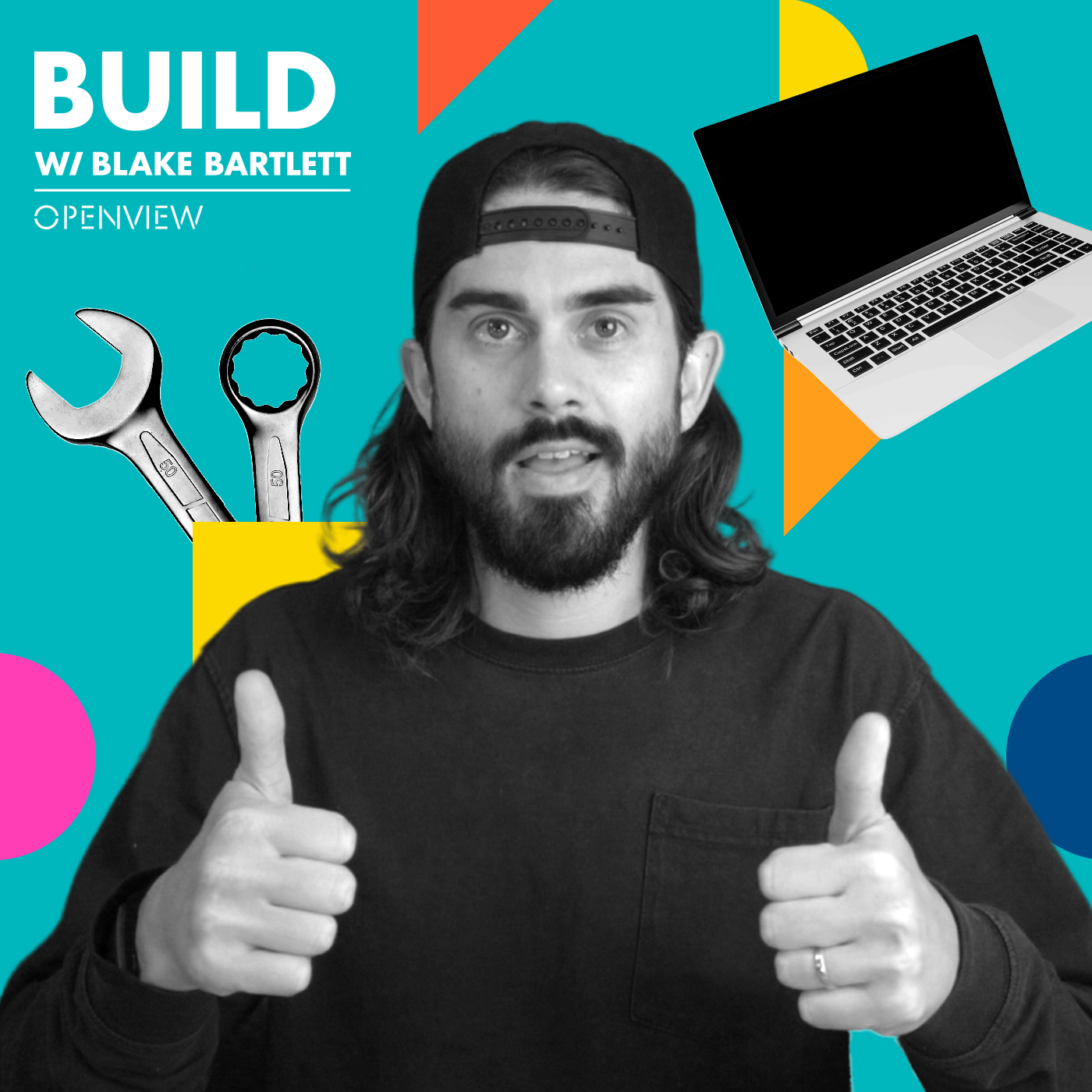
Blake Bartlett
Today's Guests
